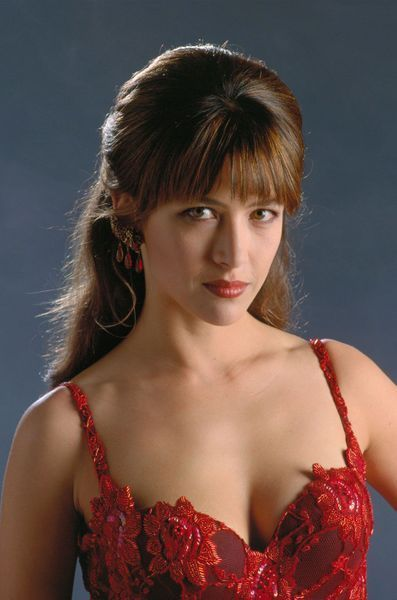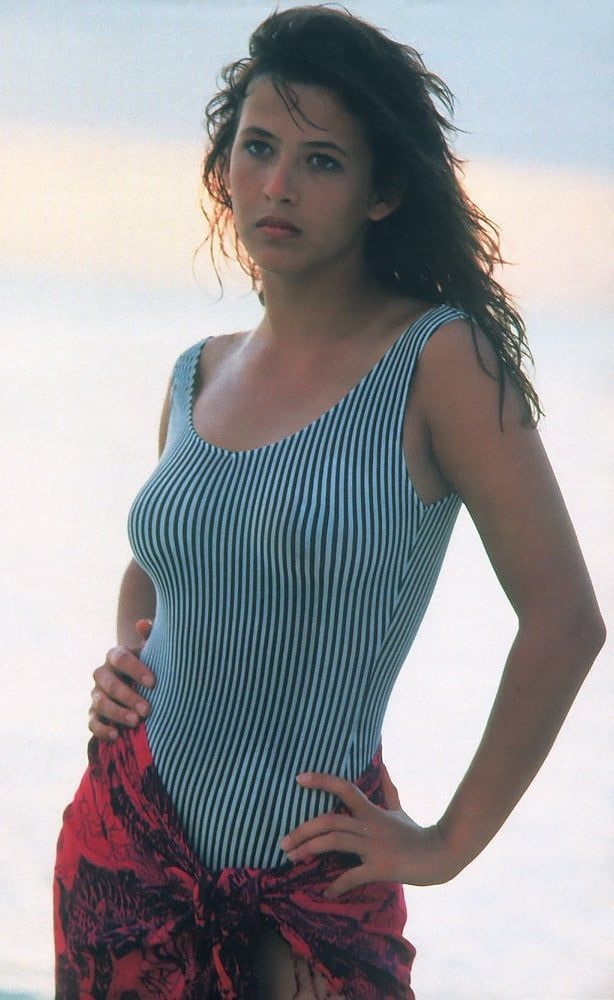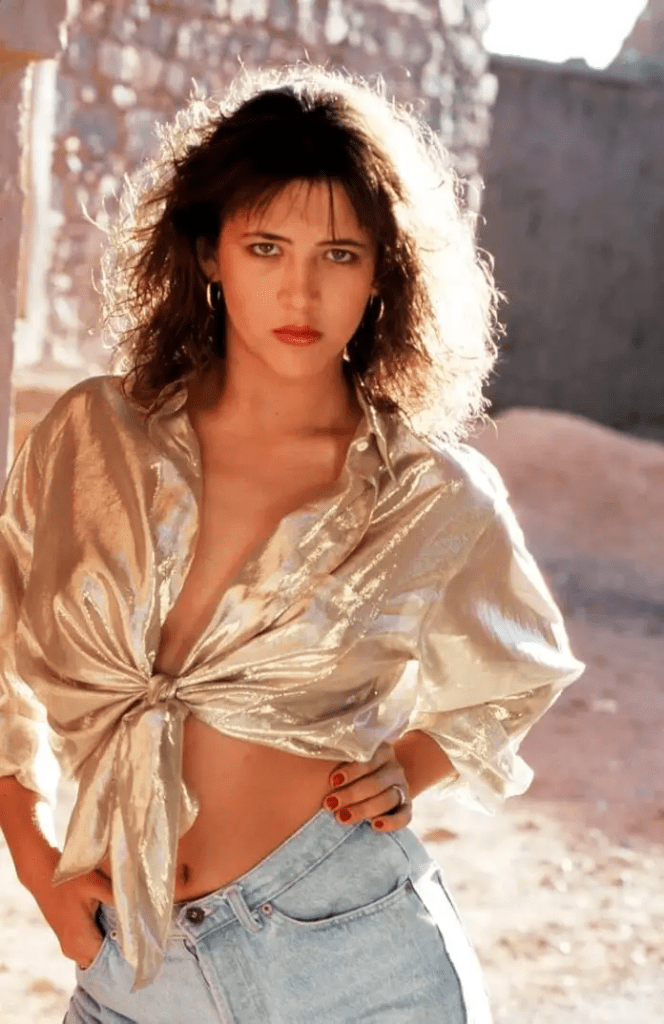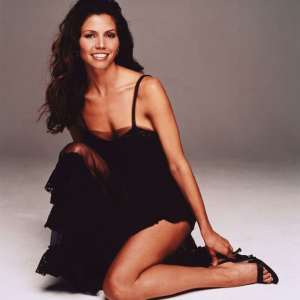Sophie Marceau was born Sophie Danièle Sylvie Maupu on November 17, 1966, in Paris, France. Raised in a modest household—her father worked as a truck driver, and her mother was a shop assistant—Marceau’s early years were a world away from the glitz and glamour of show business. Yet, by age 14, she was thrust into the limelight after being cast in La Boum (1980), a teen romantic comedy that struck a chord with audiences and became a massive box-office success.
Her portrayal of Vic Beretton wasn’t just a breakout role—it was a cultural milestone. The film captured the essence of French adolescence, and Sophie instantly became a national sweetheart. La Boum 2 (1982) followed, earning her a César Award for Most Promising Actress, and cementing her place as a rising star.

Breaking Free from Typecasting
Rather than settling into teen idol status, Marceau made a deliberate effort to expand her artistic range. She took on more serious and complex roles in films such as Fort Saganne (1984) with Gérard Depardieu, and Police (1985), directed by Maurice Pialat. These performances marked a dramatic shift in her career, proving she could handle emotionally demanding characters and adult themes.
Through the 1990s, Marceau continued to diversify her roles. Films like Fanfan (1993), Revenge of the Musketeers (1994), and Anna Karenina (1997) showcased her ability to tackle historical drama, action, and romance with equal finesse. These projects reflected her growing influence in both French and international cinema circles.
Video: LA BOUM – Reality – Richard Sanderson (HD)
International Breakthrough: Braveheart and Beyond
Sophie Marceau became a global name with her role as Princess Isabelle in Braveheart (1995), directed by and starring Mel Gibson. Her elegant yet powerful performance played a pivotal part in the film’s emotional resonance, helping it win multiple Academy Awards and gain international acclaim.
Then, in 1999, she joined the James Bond franchise, portraying Elektra King in The World Is Not Enough. Unlike the typical Bond girl, Elektra was layered and morally ambiguous—a role Marceau handled with confidence and sophistication. Her performance added depth to the film and positioned her as one of the franchise’s most memorable female characters.
An Artist Behind the Camera

By the early 2000s, Sophie Marceau expanded her creative reach. Her directorial debut, Speak to Me of Love (2002), won Best Director at the Montreal World Film Festival, a rare honor for a first-time filmmaker. The film’s introspective tone and nuanced storytelling reflected Marceau’s desire to tell stories rooted in human emotion and psychological complexity.
In 2007, she followed up with La Disparue de Deauville, where she not only directed and wrote the screenplay but also played the lead role. These films allowed her to control the narrative and explore themes of female identity, solitude, and emotional resilience—topics she believed were too often overlooked in mainstream cinema.
Remaining Grounded Amid Global Stardom

What has always set Sophie Marceau apart is her authenticity. Despite international fame, she has avoided the superficial aspects of celebrity culture. Preferring to live a quiet life in France, she focuses on literature, art, and raising her two children. Her interviews often reflect a thoughtful, introspective nature, and she chooses projects that align with her personal values rather than commercial trends.
This commitment to artistic integrity has not gone unnoticed. Fans and critics alike appreciate her refusal to be molded by Hollywood’s expectations, embracing instead a career that reflects depth and intentionality.
Continued Excellence on Screen
Video: Sophie Marceau
Even in recent years, Marceau has remained as compelling as ever. In Everything Went Fine (2021), directed by François Ozon, she played a daughter grappling with her father’s wish for assisted suicide. The emotionally rich performance reminded audiences of her enduring talent and ability to bring empathy to difficult subject matter.
She also appeared in Mrs. Mills (2018), a comedy she wrote, directed, and starred in, and A Woman of Our Time (2022), where she portrayed a high-ranking law enforcement officer confronting both internal and external moral challenges. These roles prove she is still evolving, taking on characters that are as mature and multifaceted as the actress herself.
The Beauty of Substance Over Hype

Sophie Marceau’s reputation in European cinema is unmatched. She is consistently celebrated as one of the most beautiful and respected women in film—not just for her physical elegance, but for her intellectual depth and commitment to authenticity. While she could have capitalized on her international fame to chase blockbuster after blockbuster, she chose a more thoughtful path.
Her image has gracefully evolved over the decades, from fresh-faced teen idol to cinematic icon, while never losing sight of what truly matters—meaningful storytelling and emotional honesty.
Defying Expectations in Her Fifties
Video: THE WORLD IS NOT ENOUGH | Elektra arrives at the Casino
Now in her late 50s, Sophie Marceau continues to push boundaries. She refuses to conform to the outdated expectations of aging actresses, instead embracing each new phase of life with confidence and creativity. She’s not looking back or fading into the background—she’s charting new territory, developing projects that resonate and inspire.
Her journey is proof that women in cinema don’t have to compromise their vision to stay relevant. With every role, she reaffirms the value of artistry over fame, purpose over popularity.
A Lasting Legacy of Strength and Grace

Sophie Marceau’s story is one of transformation, resilience, and unwavering creative integrity. From her early days as France’s sweetheart to her status as a global icon, she has consistently chosen substance over spectacle. Her films, both in front of and behind the camera, reflect a commitment to truth, emotion, and complex humanity.
As she continues to shape European and international cinema, one thing is certain—Sophie Marceau’s legacy is far from finished. With grace, intelligence, and determination, she has secured her place as a timeless force in the world of film.


